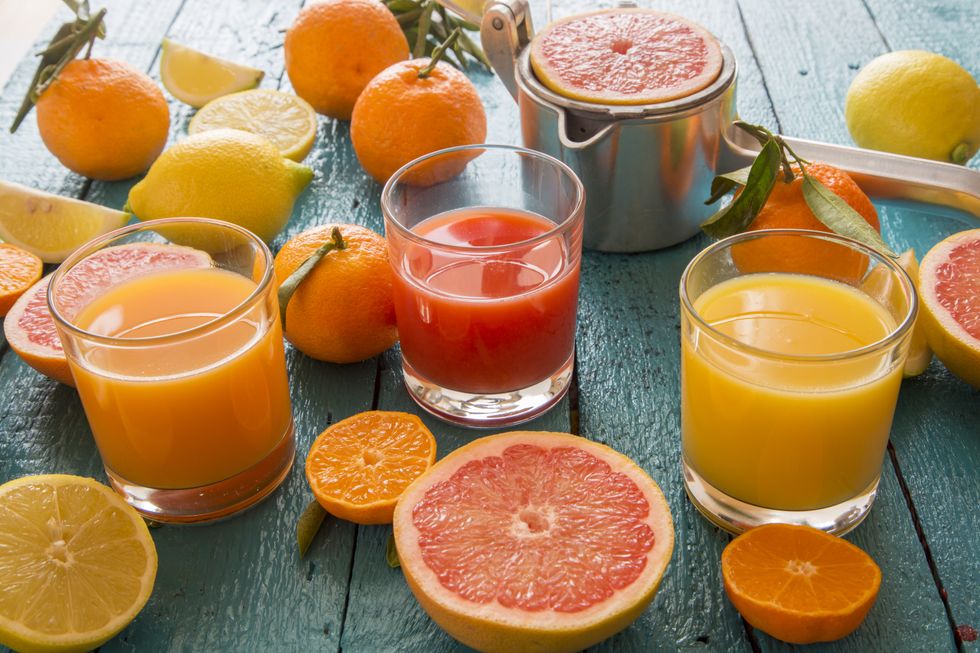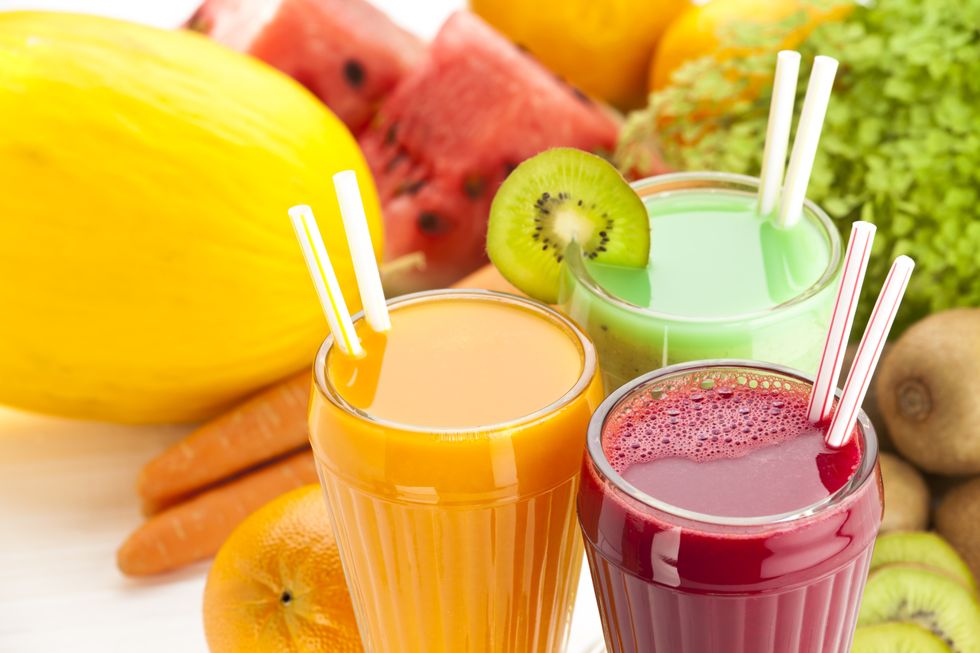Type 2 diabetes: Britons urged to ditch fruit juice for morning staple dubbed 'gold standard' by dietitian

WATCH NOW: How to avoid increasing your risk of diabetes
|GB News
New findings highlight the importance of making healthy breakfast choices
Don't Miss
Most Read
Britons have been urged to axe their classic fruit juice in favour of a morning dose of whole fruits, hailed as the "gold standard" for health benefits.
The alert comes as new research by the American Journal of Medicine uncovered that consuming fruit-type drinks is linked with a 15 per cent increased risk of type 2 diabetes.
Meanwhile, 100 per cent pure fruit juice indicated no connection with the condition. Additionally, eating whole fruit can counteract the risk of type 2 diabetes, packed with fibre, vitamins and minerals.
Award-winning nutritionist and consultant at the Fruit Juice Science Centre, Dr Carrie Ruxton explained: "This study highlights the importance of choosing 100 per cent fruit juice over sweetened or diluted alternatives.

Pure fruit juice indicated no connection with type 2 diabetes, unlike sugar fruit drinks
|GETTY
"While whole fruit remains the gold standard for health benefits, 100 per cent fruit juice can be a convenient and nutritious option for families, providing essential vitamins and minerals without the added sugars found in fruit drinks, such as Sunny D and Capri-Sun," she added.
The increased risk is believed to be associated with fruit-type drinks could be down to two factors.
1. A lack of fibre in the fruit juice
Fibre is known to regulate blood sugar levels and, therefore, consuming drinks with none of the original fruit's fibre. All 100 per cent juices, on the other hand, contain pectin (which is a sort of soluble fibre) while other juices have pulp.
2. Added sugars
The increased amount of sugar in fruit drinks causes the beverage to have a higher calorie count, potentially leading to blood sugar spikes.
LATEST DEVELOPMENTS
The latest data is a stark warning for families with children, as the doctor encouraged parents to think about three core issues when it comes to their children's diets.
1. Electing for 100 per cent fruit juice
When it comes to completing the weekly shop, try and search for products labelled with the phrase "fruit juice". It means that the product only includes the natural juice, free from added sugars, sweeteners and water.
As a result, it keeps a hold of its nutritional value, bursting with the fruit's original, naturally-occurring vitamins, minerals and antioxidants - all of which "support immune function and heart health - great for breakfast time to kickstart the day".
2. Prioritising whole fruits
"Whole fruit should always be the first choice when it comes to consumption," Dr Ruxton insists, adding: "Whole fruits, such as apples, oranges, and berries, are rich in dietary fibre, which helps regulate blood sugar levels, supports digestive health, and promotes a feeling of fullness.

Whole fruits, including apples, oranges, and berries, are rich in dietary fibre
|GETTY
"In addition to fibre, whole fruits contain a wide range of beneficial compounds, including phytochemicals and antioxidants."
3. Cutting down on fruit drinks
More often than not, these sweet fruity drinks contain added sugars, sweeteners or extra water. As a result, they should be deployed and consumed only sparingly due to driving up increased calorie intakes and blood sugar spikes.
The doctor clarified: “Under both EU and UK law, any product labelled as ‘fruit juice' is 100% pure fruit juice. That means it cannot contain added sugars, sweeteners, preservatives, colours or flavourings - only the naturally occurring sugars found in whole fruit."
Type 2 diabetes is increasingly a global health issue, which is why risk factors such as poor diet are taking such a central role in research. It is estimated that almost 4.6 million people in Britain currently live with diabetes, according to data from Diabetes UK.










